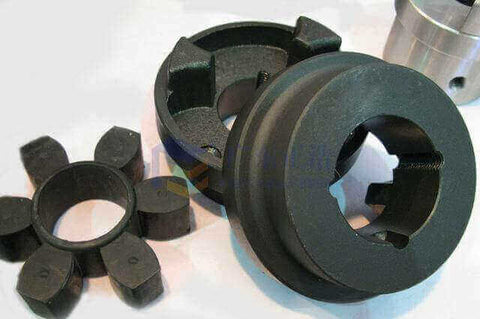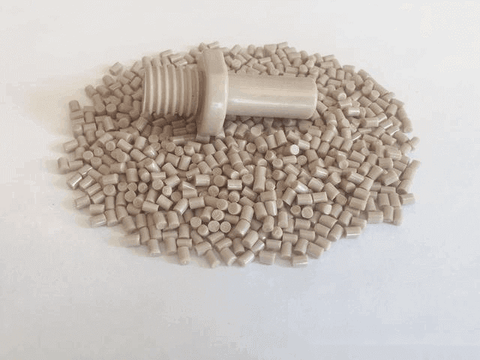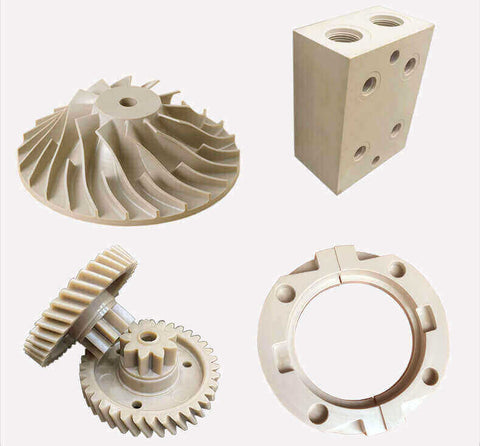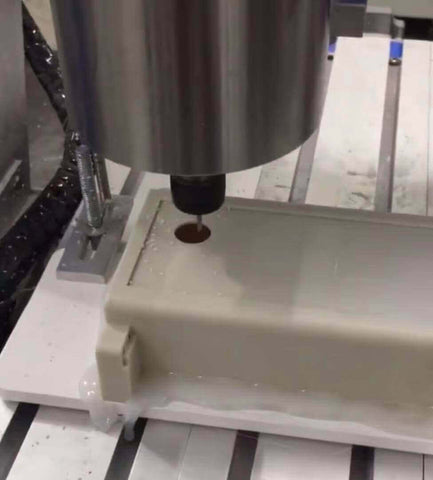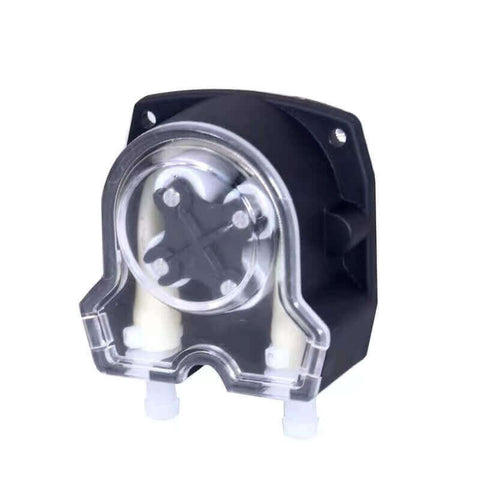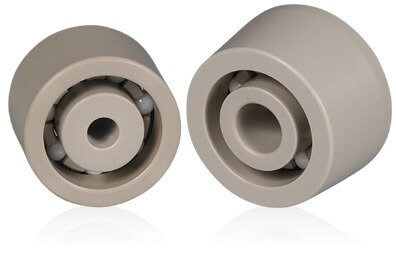In the insightful blog post "Mastering Machine Building: The Role of PPS CNC Machining in Modern Industry," we delve into the transformative world of PPS (Polyphenylene Sulfide) CNC Machining, a cornerstone in contemporary industrial manufacturing. The post kicks off with an introduction to PPS CNC Machining, unraveling its unique properties and significance in machine building.
🎉🎉🎉Limited Time Offer Use code: QR4GNY08SHVR at checkout and enjoy a special discount on your entire order! 👉PPS board
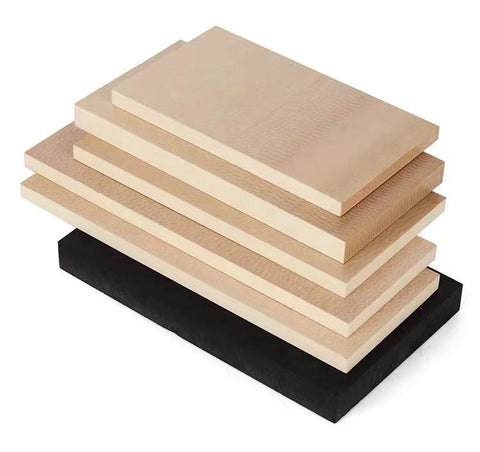
We then explore the advantages of PPS in industrial applications, highlighting its exceptional temperature resistance, chemical stability, and dimensional accuracy. These features not only make PPS an ideal material for harsh industrial environments but also a game-changer in producing high-quality, durable machinery.
The journey continues with compelling case studies that showcase real-world successes. These stories bring to life the practical applications and efficiencies gained from PPS CNC Machining in various industries, offering readers tangible examples of its impact.
A comparative analysis titled PPS CNC Machining vs. Traditional Materials provides an in-depth look at how PPS stands out against conventional materials used in machine construction. This section emphasizes the material's superiority in specific industrial scenarios.
Keeping pace with innovation, the post delves into the latest advancements in PPS CNC Machining techniques. This segment sheds light on cutting-edge technologies and methods that are pushing the boundaries of what's possible in industrial machine building.
Lastly, we gaze into the future with "Future Trends and Potential of PPS in Industry." This forward-looking perspective discusses emerging trends, the growing role of PPS in sustainable manufacturing processes, and its potential to revolutionize various industrial applications.
This blog post is a must-read for professionals and enthusiasts in the field of industrial manufacturing, offering a comprehensive understanding of how PPS CNC Machining is shaping the future of machine building.
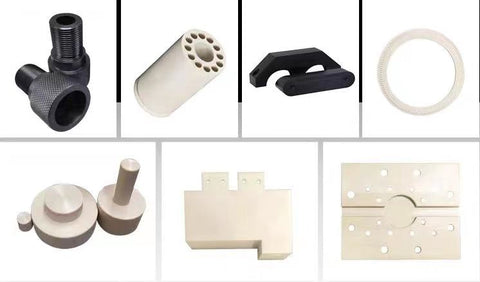
Introduction to PPS CNC Machining
In the realm of modern industrial machine building, a significant revolution has been brought about by the advent of PPS (Polyphenylene Sulfide) CNC Machining. This technology has emerged as a cornerstone in the manufacturing sector, offering unparalleled benefits and efficiencies.
What is PPS CNC Machining?
PPS CNC Machining refers to the process of using computer numerical control (CNC) technology to shape and mold Polyphenylene Sulfide, a high-performance thermoplastic polymer. This advanced manufacturing technique allows for precise and efficient shaping of PPS into various components used in industrial machinery. The integration of CNC technology with PPS material has opened new horizons in the field of machine construction and design.
Unique Properties of PPS
One of the most compelling aspects of PPS is its set of unique properties, making it highly sought after in industrial applications. PPS is renowned for its high temperature resistance, maintaining stability and performance in environments where other materials would degrade. Additionally, its excellent chemical resistance makes it suitable for use in corrosive environments, a common challenge in industrial settings.
PPS also boasts superior dimensional stability. This means that components made from PPS are less likely to warp or deform under stress, ensuring consistent performance and longevity of the machinery they are part of. Furthermore, PPS's inherent flame retardancy and electrical insulation properties add to its appeal in various industrial applications.
Relevance in Modern Industrial Machine Building
The relevance of PPS CNC Machining in modern industry cannot be overstated. Its ability to produce parts that can withstand harsh conditions and maintain integrity under high stress is crucial for industries that demand reliability and precision. Industries such as aerospace, automotive, and electronics heavily rely on PPS CNC Machined parts for their critical applications.
Moreover, the versatility of PPS, combined with the precision of CNC machining, allows for the creation of complex and intricate parts that were previously challenging or impossible to manufacture. This has led to innovations in machine design and functionality, pushing the boundaries of what's possible in industrial machinery.
In conclusion, PPS CNC Machining stands as a pivotal technology in the landscape of industrial manufacturing. Its unique properties and suitability for challenging environments make it an ideal choice for machine builders looking to innovate and improve the efficiency and reliability of their products. As industries continue to evolve, the role of PPS CNC Machining is set to become even more integral in shaping the future of machine building.
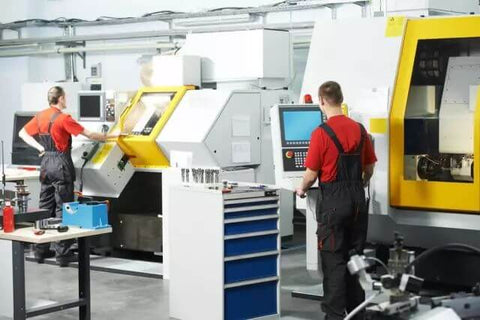
Advantages of PPS in Industrial Applications
The use of PPS (Polyphenylene Sulfide) in CNC machining has brought a paradigm shift in industrial manufacturing. This section delves into the myriad benefits of PPS, particularly focusing on its high temperature resistance, chemical resistance, and dimensional stability, which collectively make it an exemplary material for industrial environments.
High Temperature Resistance of PPS
One of the standout features of PPS is its exceptional high temperature resistance. PPS can withstand prolonged exposure to high temperatures without losing its mechanical properties or structural integrity. This characteristic is particularly beneficial in industries like aerospace and automotive manufacturing, where components are regularly exposed to extreme heat. The ability of PPS to maintain its form and function in such conditions reduces the risk of part failure, thereby enhancing the safety and reliability of industrial machinery.
Chemical Resistance of PPS
Another significant advantage of PPS in industrial applications is its remarkable chemical resistance. PPS is resistant to a wide range of chemicals, including acids, alkalis, and organic solvents. This resistance is crucial in industries such as chemical processing, where materials are frequently exposed to corrosive substances. The use of PPS in these environments means that components are less likely to degrade or corrode over time, ensuring longer service life and reducing maintenance costs.
Dimensional Stability of PPS
Dimensional stability is a critical factor in the manufacturing of precision parts, and PPS excels in this regard. Even under mechanical stress or in fluctuating thermal conditions, PPS maintains its shape and size. This property is invaluable in the production of intricate components where precise tolerances are essential. The consistent performance of PPS-made parts ensures that machinery operates smoothly and efficiently, minimizing downtime due to part malfunctions or replacements.
Ideal for Industrial Environments
The combination of high temperature resistance, chemical resistance, and dimensional stability makes PPS an ideal material for use in various industrial environments. From high-stress applications in automotive engineering to precision components in electronic devices, PPS's properties ensure that it can meet a wide range of industrial demands. Its versatility and durability not only improve the performance of machinery but also contribute to cost-effectiveness by reducing the need for frequent replacements and maintenance.
In summary, the integration of PPS in CNC machining offers a multitude of benefits for industrial applications. Its ability to withstand harsh conditions while maintaining precision and integrity makes it a preferred choice for manufacturers aiming to enhance the quality, reliability, and efficiency of their products. As industries continue to advance and face new challenges, the role of PPS in meeting these demands is undoubtedly significant.
